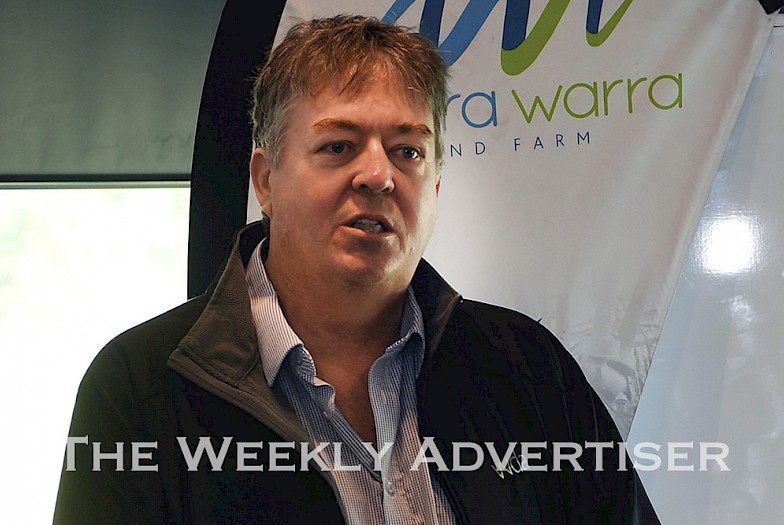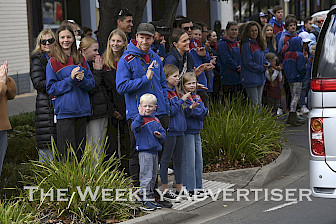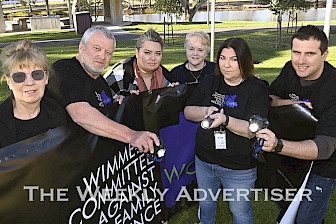AusNet officials plan to build the transmission line from Bulgana near Great Western to Sydenham in northwest Melbourne.
Wimmera Development Association leaders estimate the project might generate about $10-billion for the Wimmera and southern Mallee economy.
Mr Sounness said protests against the transmission-line project, including the Parliament House rally last week, were in conflict with a Wimmera need for the infrastructure to build on much-needed economic development.
He added that any territorial conflict between the state’s west and central west would be detrimental for both regions, stressing that transmission delays seriously disadvantaged the Wimmera-Mallee, which unlike the region between Melbourne and Ballarat had so far missed out on a population shift.
He said an Environmental Effects Statement had been provided to understand the impacts the transmission-line project would have on land near or part of a planned route.
“The legislation in place is well known and established,” he said.
Upper-house Western Victorian Liberal representative Beverly McArthur, who attended the protest, claimed figures from the Central Highlands Potato Growers Association showed the transmission line would affect the Ballarat region’s $1.3-billion potato industry.
“McCain Foods has also determined a $250-million economic impact from the Western Victorian Transmission Line Network Project and the potential loss of 1100 jobs,” she said.
Mrs McArthur said the State Government needed to re-think its construction plan for the project.
“What people want is for this mess to stop – go back to the drawing board – and for a whole of state solution to be considered, not just for the next election, but for the next 100 years,” she said.
“The truth is this: the Victorian Environment Minister Lily D’Ambrosio, can stop this project.”
Victorian Farmers Federation horticulture vice-president Katherine Myers of Tourello said the transmission line would impact potato farmers. “Potato growers use helicopters and aeroplanes to spray crops with fertilisers,” she said.
Ms Meyers, a sheep, crop and potato farmer, said farming circumstances were considerably different between the Wimmera-Mallee and Ballarat district, with infrastructure likely to have a greater impact on much smaller farms in the Central Highlands.
“There has been no consideration of agriculture and tourism,” she said.
Ms Meyer claimed the project was ‘messy’ and would welcome negotiations with Ms D’Ambrosio.
She said the state was at a ‘tipping point’ and needed a new energy-grid system and coal was not the future.
Member for Mallee Anne Webster said getting the formula right to satisfy the greater good in tapping into Victoria’s renewable-energy opportunities was challenging.
“It’s a tough scenario because making this work affects so many people in so many different ways,” she said.
“The big issue here is that we need to add renewables onto the electricity grid for the good of all – it has an impact on everyone.
“There needs to be a strong conciliatory process and hopefully we can get answers we need to establish a balance soon.
“This dispute is similar to arguments surrounding developing electrical inter-connectors – it takes a long time to come up with a solution that is beneficial for all.”
The entire March 16, 2022 edition of The Weekly Advertiser is available online. READ IT HERE!






